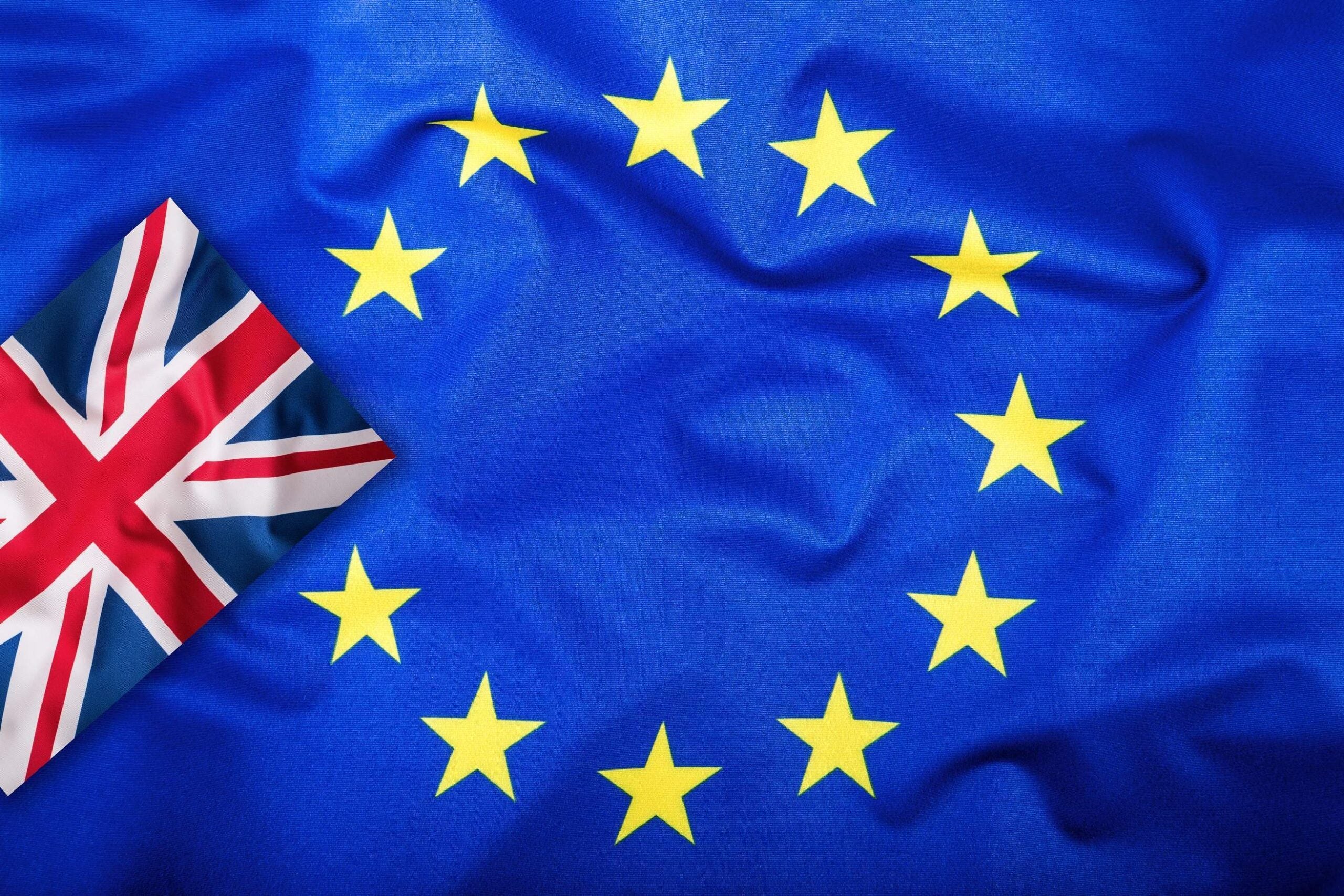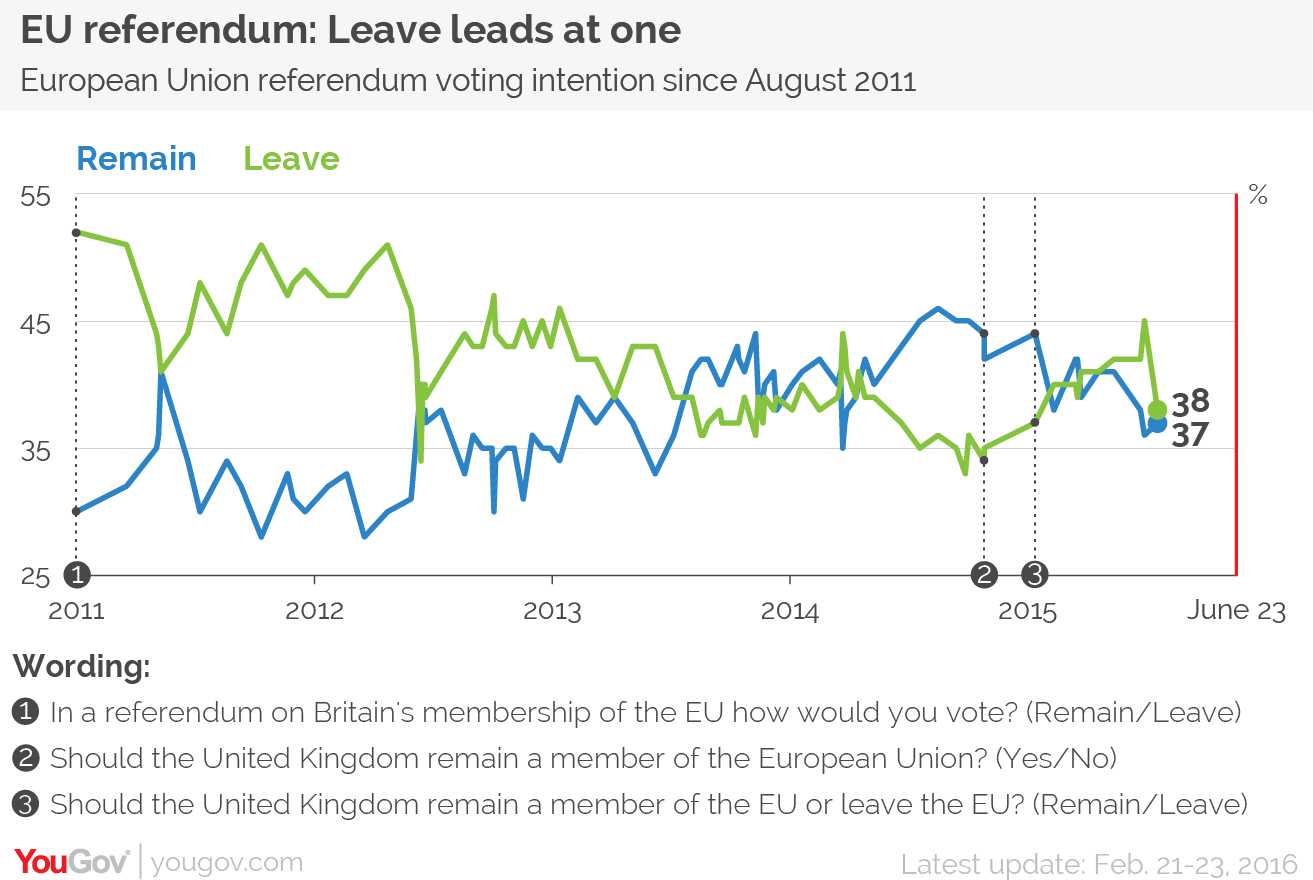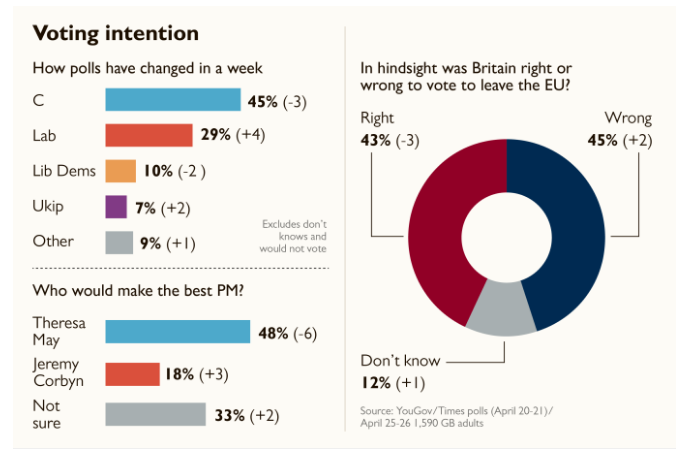
After the UK’s Brexit referendum last June, there was much concern that the polls had got it wrong.
Once the votes were counted, 51.9 percent of the population chose to leave the European Union (EU), compared to 48.1 percent who voted to remain.
This shocked many people in the UK and around the globe who had predicted that the UK would choose to stay in the union.
Polls after the vote was announced
Then-prime minister David Cameron announced the date Britain would head for the polls back on 20 February 2016.
This marked the start of the campaigning date, as it allowed Conservative ministers to go against their leader’s line, which was to remain in the EU, and campaign for the result that they wanted.
YouGov released poll figures on 24 February, so four days after Cameron announced the official referendum. At this time, Leave was actually winning the polls but only marginally.
It found that 38 percent of the public wanted Leave, compared to 37 percent for Remain and 25 percent for don’t know or wouldn’t vote.

Polls before the Brexit vote
In the run up to June 2016, the polls were very tight but showed that Remain would win over Leave.
In YouGov’s closing poll on the day before the referendum, it showed that Remain would triumph with 51 percent compared to Leave’s 49 percent.

Whilst this wasn’t actually correct, it demonstrated how tight the race was.
Throughout the campaign, YouGov said: “Our current polling suggests the race is too close to call … it is still possible that people will change their mind on the day.”
Other pollsters, such as TNS and Opinium, had Leave with a two-point lead before the Brexit vote, and are credited with accurately predicted how the referendum would go.
Polls since the vote
Despite it being nearly a year since Brexit was decided, the referendum is still a major source of contention in British politics, in terms of agreeing on the deal to leave the union and what has changed in the country since last June.
According to a poll done by the Mirror in February this year, 51 percent of people said they would vote Remain compared to 49 percent who said they would vote Leave.
So pretty similar figures, with a slight tilt towards staying in the union this time.
What was interesting was that 13.5 percent of people who voted to leave said they would vote Remain if there was a second referendum, suggesting the tide had started to turn against Brexit. However, over 50 percent said they did not want a second referendum.
A different poll, carried out by YouGov for the Times, found that a majority of British voters said the country was wrong to vote for Brexit.
A total of 45 percent of respondents considered Brexit to be the wrong decision, compared to 43 percent who stood by the decision, and 12 percent who said they didn’t know.

“My expectation is, as I’ve said before, the people will probably [lean] more towards ‘Bregret’ to some degree, simply because Brexit will require some compromises and some people’s high hopes will be disappointed,” said YouGov research director Anthony Wells.
What will the general election show us about Brexit?
The UK is heading for a snap general election on the 8 June and it is thought this will be the final decision the public will make on Brexit.
UK prime minister Theresa May has made it clear that she called for the election in order to get a mandate from the public to carry out Brexit.
She told the BBC that the new mandate would give her the “strongest hand” in the negotiations and will make it hard for people to “frustrate” the exit process.
Whilst the UK remains in this no man’s land before Brexit officially happens on 29 March 2019, expect more polls to come out pointing to changed ideals and opinions.
“Re-Leavers” are coming out of the woodwork
We’re nearing the Brexit anniversary date and it seems like YouGov’s latest figures are tilting more people towards Leave.
A total of 68 percent respondents said they are happy to see the UK leave the EU, which is far from the equal 51/49 percent result back in April.
As well, those that want to see the UK leave the union, around 23 percent voted remain last year but now believe the government has a duty to carry out the will of the British people. In a similar vein to the tagline of “remoaners” which was given to those who voted to remain and were complaining about the referendum result, this group of people have been named “Re-Leavers”.
YouGov’s director of international projects, Marcus Roberts, said:
“The rise of the ‘Re-Leavers’ mean that the Conservatives are fishing in a massive lake, while the other parties are casting their rods into a pond.
“When discussing Brexit and its implications in the campaign the electorate is not two pools of voters split almost down the middle 52/48. Instead, it is instead one massive lake made up of Leave and Re-Leave voters and one much smaller Remain pond.”

What do businesses and markets think about Brexit?
Before the referendum, and since then, there have been concerns over how the business community is holding up since the vote. As the negotiations start to get underway to discuss the UK-EU divorce, keep up with Verdict’s business sentiment tracker to see what the markets think.







